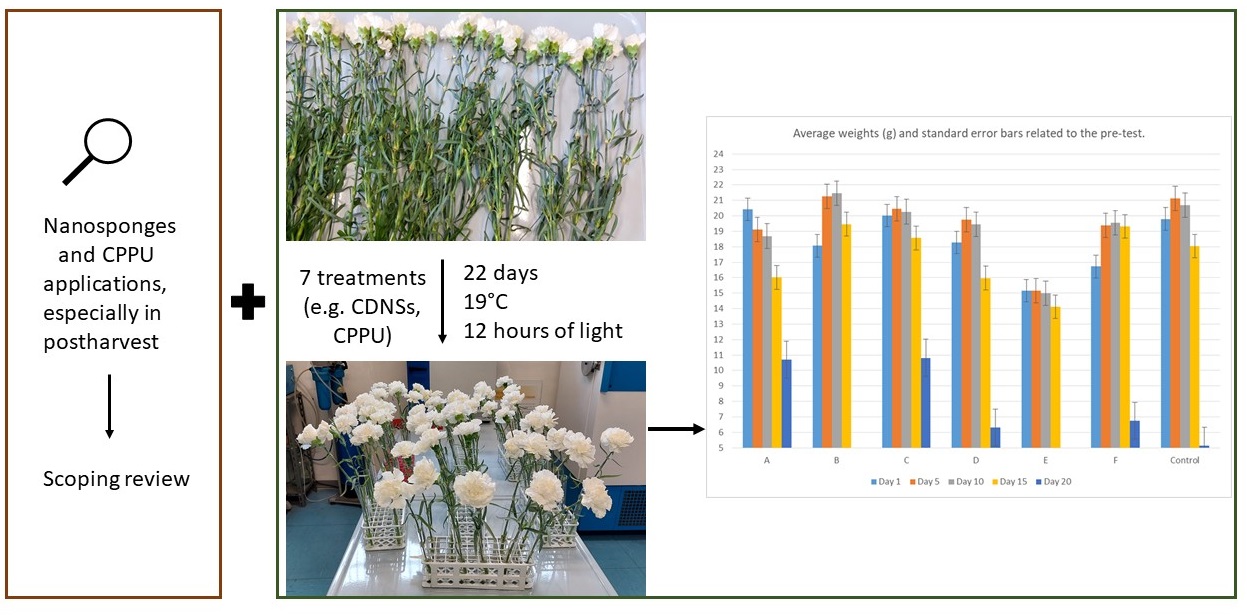
Published 2023-03-13
Keywords
- Dianthus caryphyllus L.,
- forchlorfenuron,
- growth regulators
How to Cite
Copyright (c) 2023 Luca Battisti, Fabrizio Caldera, Gjylije Hoti, Francesco Trotta, Marco Devecchi

This work is licensed under a Creative Commons Attribution 4.0 International License.
Abstract
Nanosponges can favour the gradual release of molecules over a prolonged time, increasing the bioavailability and action of preservatives and phytoregulators, reducing the concentrations usually adopted. In floriculture, they have previously been proposed for the delivery of anti-ethylene compounds to improve the shelf-life of cut flowers. However, the potential of nanosponges is not only limited to these compounds. The present study evaluated the effects of β-cyclodextrin-based nanosponges and growth regulators on the post-harvest longevity of cut flowers of ornamental species. One novelty was the use of Forchlorfenuron (CPPU), a growth regulator belonging to the group of cytokinins predominantly used in fruit cultivation, to evaluate its potential to increase the shelf-life of cut carnations (Dhiantus caryophyllus). Specifically, as far as post-harvest longevity is concerned, the treatments involved the use of: deionised water; nanosponges and deionised water; nanosponges loaded with CPPU; nanosponges loaded with a classic solution for cut flowers, composed of sucrose, aluminium sulphate and 8-hydroxyquinoline sulphate. Preliminary results show that the nanosponge and deionised water complex and the nanosponge and classical solution complex prolonged the longevity of the cut flower by up to 20 days, compared to the control (17 days). In contrast, the CPPU-nanosponge complex showed similar results to the control. Replication of the research is necessary to validate the results.




